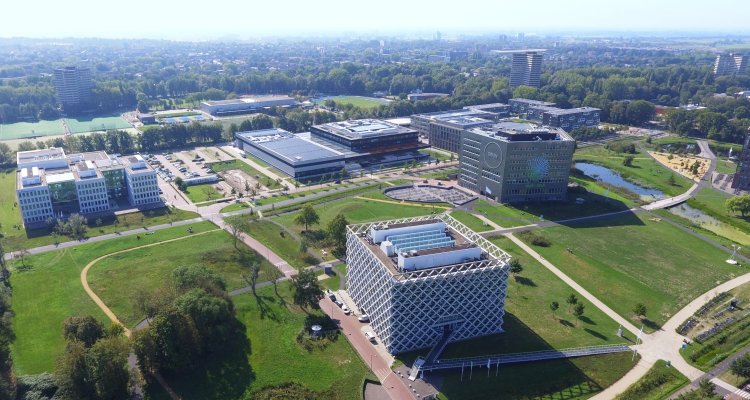
News
Executive Board adopts advice on fossil collaboration
The Executive Board has decided to adopt the “Assessment framework and procedure for collaborations with partners from the fossil fuel industry in research projects” as put forward by the advisory group in late December. Meanwhile, the board recognises that a number of elements require further detailing, both to enable the framework to be initially applied, and to ensure that the experience from applying the framework can be used to hone and enhance it.
The Executive Board once again compliments the advisory group on the result. The Executive Board believes that the proposed framework and decision-making procedure reflects a delicate balance on a controversial topic. Various elements of the framework will be viewed differently within the various stakeholder groups, including WUR colleagues, students, partners and other (scientific) institutions.
The Executive Board has considered the advice and has taken into account the many signals from both within and beyond our organisation. Fossil fuels account for more than 75 percent of global greenhouse gas emissions, and nearly 90 percent of all carbon dioxide emissions, making them the single largest contributor to global climate change. We all share the conviction that it is imperative that society curbs these emissions drastically. The fossil fuel industry is at the heart of this and, therefore, we consider it important and necessary to implement this specific framework for research collaborations with these parties.
We share the conviction that it is imperative that society curbs these emissions drastically
The Executive Board directs the Corporate Strategy & Accounts (CSA) department to ensure, in consultation with Rens Buchwaldt, that the framework can be applied to new research/project proposals as of 1 June 2024 at the latest. The EB asks CSA to make the framework and decision-making procedure ready for operationalisation and to pay specific attention to the following elements:
- The advisory group (that delivered the advice) concluded its work as of December 2023. The advisory committee to be newly formed with a role within the application of the framework should consist of five persons, with the necessary diversity of perspectives and knowledge on the topic. The committee will be appointed by the Executive Board.
- The practical procedures for the advisory committee should be as simple as possible, enable swift execution of the various steps, ensure the independence of the committee, be publicly available, and enable quick learning from the use of the framework. A number of recent (2022/2023) projects with fossil fuel companies – preferably both projects that were started as well as some that were rejected – should be reviewed by the committee prior to 1 June to test the framework and the practical procedures.
- The self-scan (step 0 and step 1 in the framework) uses a number of external references that the advisory group considers “the best available” at this time for practical use. WUR needs to continuously monitor the development around these references, and asks the advisory committee to recommend better alternatives if they become available.
- The element of project financing by the fossil fuel company partner (the 30% criteria included in question 4 in step 1 of the framework) as an indicator of (undue) influence on the project requires further clarification. WUR does not enter into collaborations in which the fossil fuel industry has complete say in the project and we always keep our independent position. The requirement should reflect this and it should result in an unambiguous formulation, which must also be in accordance with the different funding structures in which WUR operates, such as NWO funding, EU funding, consortia and bilateral projects (particularly within WR).

- The signalling role of the advisory committee towards the Executive Board as described in the advice, (in case the committee feels that their advice is not taken seriously and/or in case the committee is seriously concerned about potential violation of the strategic goals of WUR, reputation risks and/or negative impacts), should be clearly defined and made actionable.
- To ensure harmonisation between Science Groups in decision making, the procedure should include some method of intervision or consultation between the Managing Directors.
- One year after implementation, an integral evaluation of the framework and its implementation should be held. CSA will be asked to develop a procedure and criteria for such an evaluation, which should then be concluded by the end of June 2025 at the latest. A concise interim evaluation should be performed when ten project proposals have been processed by the committee.
- Reporting should be done when individual projects go forward after going through the procedure, made available on the WUR website, including details of the considerations or conditions. Annually (starting in the 2024 calendar year), an overall report is to be made about all project proposals the committee received and advice it provided, evaluations of projects that went forward (were goals fulfilled and lessons learned) and an overall assessment of the framework and its application, including any proposals for improvement.

Education was outside the scope of the advisory group, but the group has recommended that the Executive Board considers new WUR policy regarding collaborations with partners from the fossil fuel industry in the area of education, such as: ACT projects, Theses, Guest lecturers, Career Days, internships etc. The Executive Board wants to follow up on this recommendation, and asks that the Dean of Education develops such a policy based on the framework for fossil company research partners to be put forward to the Executive Board.
The Executive Board is aware of discussions and questions on the collaboration with other (industry) partners than those in the fossil industry. We consider the existing project-based WUR principles of collaboration to be an adequate framework for decision making for projects with partners outside the fossil industry.